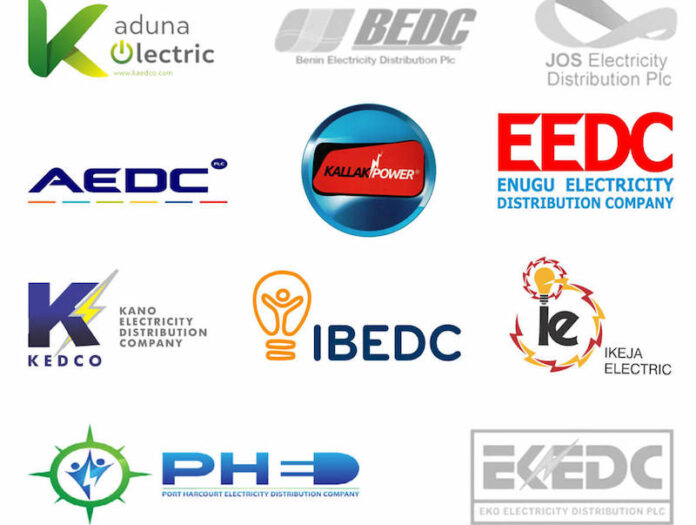mid Power Sector Illiquidity, Discos’ Billing Rise N13.5bn, Revenue Increases by N3bn
The total amount billed to electricity customers by Distribution Companies (Discos) rose from N113.05 billion to N126.56 billion between February and March this year, even as power supply nationwide remained epileptic for the period.
However, total revenue collected by the Discos, latest data from the Nigerian Electricity Regulatory Commission (NERC) showed, rose marginally from N97.01 billion to N100.44 billion .
In terms of revenue recovery performance, NERC stated that average allowed tariff for March stood at N62.73, while actual collection was N40.69 for the month, resulting in an overall recovery efficiency of N67.94.
However, for the previous month of February, allowed average tariff was N59.89, while actual average collection was N45.13, with a recovery efficiency of 75.36 per cent.
In March, the total energy received per gigawatt hour was 2,468.72, with total energy billed being 1,957.86Gwh, while in February, it was lesser, with 2,149.80Gwh and total energy billed being 1,759.22Gwh. For both months, the billing efficiency was 81.83 per cent in February, while it declined to 79.31 per cent in March.
A THISDAY review of data released by NERC, however showed a performance decline both February and March compared to January. This is because the power distributors’ billing was valued at N130.92 billion in that month.
This represented a 72.76 per cent collection efficiency, according to NERC, with the data showing a dip of 0.36 per cent in efficiency compared to the previous month of December.
Also, in January, total energy received was 2,577.6 GWh, while the total energy billed was 2,072.01 GWh, representing a billing efficiency of 80.39 per cent.
While operators in the power industry have consistently blamed the illiquidity in the sector, mostly occasioned by shortfalls in billing collection for the thinning investment in the Nigerian power sector, electricity consumers believe they are over-billed and that they actually pay for ‘darkness’ when they are billed for unreliable power supply, especially those on the estimated billing platform.
Aside non-cost reflective tariffs, industry operators have blamed rising Aggregate Technical, Commercial and Collection (ATC&C) losses for the illiquidity in the power sector in Nigeria, a development, which also negatively reflects on the poor services of the Discos.
According to ResearchGate, Nigeria has one of the highest Aggregate Technical, Commercial and Collection (ATC&C) losses in the world at 43.65 per cent, which has been attributed to low investments in distribution networks exacerbated by the slow progress of metering of customers which has posed a protracted liquidity challenge to the industry.
ATC&C losses include technical, commercial, and collection inefficiencies in the power distribution process, such as power theft, meter tampering, billing inaccuracies, and revenue leakages.
NERC data has consistently revealed that every Disco in Nigeria experiences ATC&C losses, exceeding their permitted targets.
In addressing this issue, industry experts have said that the Discos must make investments in infrastructure upgrades, modernise their metering systems, and improve revenue collection methods, while implementing stricter measures to combat power theft and illegal connections.
Of the 11 Discos, the NERC data showed that in March, Abuja, Ikeja and Eko Discos received the highest supply of energy nationwide, with 387Gwh, 387.42Gwh and 327Gwh respectively.
However, energy billed by the three Discos was 279 Gwh for Abuja, 321Gwh for Ikeja and and 291Gwh for Eko.
In terms of Discos’ collection performance, Ikeja was tops with N20.70 billion, even though it billed N18.63 billion for the month. Abuja was next with N16.75 billion out of its billed N20.60 billion, while Eko was third with N16.72 billion, even though it billed N19.43 billion.
In terms of revenue recovery performance, Ikeja again beat the other 10 Discos to record 94.45 per cent efficiency, followed by Eko Disco with 85.98 per cent while Eko and Port Harcourt Discos shared 68 per cent efficiency apiece.
The collection efficiency also largely aligned with Discos’ metering rate, with 73.22 per cent of Ikeja customers metered as of March, followed by Abuja’s 61 per cent, while Eko also came next with 59 per cent metered customers.
In all, of the total 13,372,524 total registered electricity customers in the country, as of March this year, total metered customers stood at 5,989,727. In March, 56,994 customer were metered. Overall metering rate for the month was 44.79 per cent.
During the month, 94,761 complaints were received, with total national metering for the period now standing at 55.06 per cent.
The federal government recently announced that it was looking to achieve an injection of 3.5 million meters into the power sector, comprising 1.5 million meters through the World Bank Distribution Support Recovery Programme and 2 million meters through the Presidential Metering Initiative (PMI).
To cure Nigeria of its incessant electricity challenges, the federal government in 2013 carried out a partial privatisation of the power sector. This means that today, only the transmission segment is still tightly under government control.
But despite that action, including pumping money into the sector in trillions, there has been no marked improvement. A nation of over 200 million people, Nigeria still struggles with 4,000mw of power daily.

























